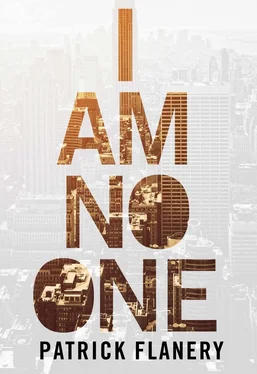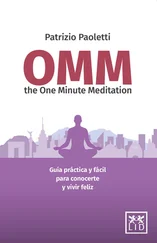My conversation with Michael Ramsey left me with a sense of relief compromised by the conviction that if he was not tormenting me then someone else was. I knew I had not lost my mind, and I know it now, with near total certainty. The boxes that came to my apartment were not imagined, their contents no hallucination. I know I did not forget the correspondence with Rachel: that was undoubtedly the intrusion and creation, the malign meddling, of someone else. I knew my mother was not lying to me about the phone call, and I believed Michael when he said he was not the one who had placed it. Michael Ramsey might, as he insisted, have nothing to do with any of what was happening, or, and this possibility intrigued me more, he was trying to help me in the only way he could manage.
The next morning I called a cab to take me to Rhinecliff. After punching in the first few digits of the number on my landline, I suddenly got a dial tone, as if I were phoning from within some larger network and could not get an outside line. I tried several times with the same result, four numbers in and the dial tone would return. I hung up and tried my cellphone, and although I was able to dial the complete number, the phone rang and was answered, but when I spoke I heard only my own voice in reply.
‘Hello?’ I said.
‘Hello?’ I said back to myself from the other end.
‘Is anyone there?’ I said.
‘Is anyone there?’ said my recorded voice.
I ended the call, tried again, and the same thing happened.
‘Hello?’
‘Hello?’
‘Can I get a cab as soon as possible?’
‘Can I get a cab as soon as possible?’
Again I hung up, dialed a different company, got an answer and a voice other than my own, a woman who said a taxi would be on its way in fifteen minutes. On the drive to the station I phoned my mother and made some excuse about needing to be back in the city early to see an old friend, or some other easy deception, I no longer remember the lie, except that my mother’s voice was clipped, as if she had other matters on her mind, or could no longer speak to me without thinking of the anonymous caller and the accusations he had made.
As I waited for the train inside Rhinecliff Station, an early twentieth-century brick pavilion with elegant slatted benches, a waiting room with a high ceiling, warm and dry and so unlike any British station I ever visited, something Stephen Jahn once said came back to me. It must have been the last conversation he and I had, perhaps in January this year, not long after Fadia had given birth. Stephen and I were in the SCR one day after lunch, and once everyone else had left the room he shifted towards me, stepping over the carpet as though he was half-drunk or had difficulty seeing, his body moving so ponderously I wondered if he was about to collapse, but then he sat down across from me, gazed up through his little round glasses, and nodded his head. I had not confided in anyone about Fadia’s pregnancy, during the course of which I had seen her regularly, but always in College, or in the company of other doctoral students and colleagues if she came to my house. No one knew, as far as I was aware, that I now had a son, and as a consequence the elation I felt was tempered by a sense of isolation from the rest of the world.
‘I should give you a cigar,’ Stephen whispered. ‘Or perhaps you’re the one who should be giving out cigars.’
‘I don’t think I understand.’
‘Yes you do, but that’s all right.’
‘Honestly, Stephen, I don’t have any idea what you mean,’ I said, though of course I did.
Stephen’s eyes goggled and shut. When he opened them again there was a hard little light burning just off center in both pupils. I knew it was nothing more than the sun refracted through his glasses, but it made me think of a jinni. A puff of air popped from his lips. Three wishes, I thought, what would my three wishes be? Return me to New York, assemble my family into a new constellation, and then disappear forever from my life, Stephen Jahn. He muttered something to himself that I could not hear and then spoke in a low voice bleached of affect.
‘In the next few days I predict you will receive an email inviting you to apply for a position at an American university. Perhaps more than one. I advise you to make applications. I further predict you will be offered a position, again, possibly more than one, and when you are you would be wise to accept whichever offer you prefer, and give your notice here, to the College and Faculty. It will be straightforward enough to arrange your affairs in Oxford. This is a seller’s market, and the house is in excellent decorative condition, as these British realtors like to say. I suspect you’ll achieve over the asking price, and you’d be a fool not to accept such an offer, although I see now that you are a greater fool than I first imagined. Never mind. When all that is completed, you will move back to America, as you have long wished. Do you understand?’
‘What game is this, Stephen?’
He brushed the wrinkles from his gray wool trousers and pursed his lips.
‘It is not a game, Jeremy. Don’t be so bumbling. I have made it quite clear—’
And there he broke off because another Fellow suddenly appeared, nodded at us, poured herself a coffee, and left.
‘I have made it clear, time and again, that it all matters,’ Stephen continued. ‘This is not a question of jest. I don’t understand how a historian like you could be so blind to the workings of contemporary history. This is history, Jeremy. You have involved yourself in a narrative that is already in progress, and which threatens to sweep us all to one side. What do you know of the girl? What do you know of her parents or her brother? Have you bothered to discover anything about them beyond what she has told you? Have you sought independent verification of anything she has said? She talks fondly of the shabab as if it were just a group of youthful revolutionaries seeking democracy but how can you be certain she does not mean something else as well, like Al-Shabaab , which is another thing entirely?’
Perhaps I sat with my mouth open, a little stupefied, but looking back on that exchange I think I said nothing in response. What could I have said? Do you, my readers, whoever you may be, not see how naïve I was? I could not conceive of doing what he asked, and so I stood, turned my back on that little man, and left the room.
A few days later, the email came from the chair of NYU’s Department of History asking me to apply for a professorship. There were other invitations as well, at least half a dozen, universities up and down the eastern seaboard. It was the first time such a thing had happened. I sent CVs and letters and a list of references. I had interviews, three campus visits in the spring, and in the end it was NYU that made the best offer. I gave Oxford my notice, sold my house to a woman who offered just more than what I was asking, and returned to America, knowing that, in some real sense, I was doing exactly what Stephen Jahn had insisted I do. Except I was not, not entirely, for I set up the monthly bank transfer, and I kept the lines of communication open with Fadia, and I was intent, then and now and forever in the future, to know and support my son. Does that make me a traitor?
Over the course of the months leading up to my departure, I saw Fadia and Selim several times, always in my College rooms, where it would not seem odd for a student to be showing off a new baby to her supervisor. We had polite sessions in which I was allowed to hold and play with my son, although I felt always the necessity of locking down my emotions, fearing that Fadia might be alarmed by any outward expression of the significant joy I felt. Alone I cried, overwhelmed with happiness, trying to believe it was no different than the jubilation I had felt at Meredith’s birth, but if I am honest with myself, and with my children (if you, Meredith and Selim, ever chance to read this), then I have to admit feelings of another valence altogether, perhaps because my son was the product of a relationship that was in so many ways forbidden. Gender alone was not a factor. I did not spend all the years of Meredith’s life up to this point longing for a son. But the circumstances of Selim’s arrival meant that there was in each of my interactions with him a charge of excitement I had not felt in the same way at any other point in my life.
Читать дальше












